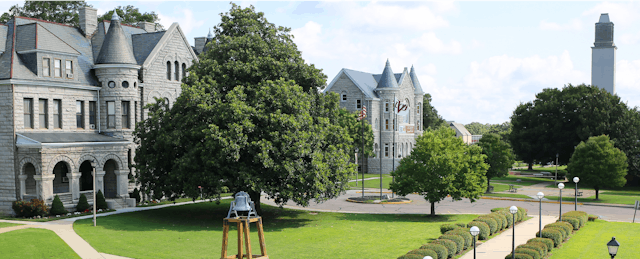Can giving students access to the latest tech gadgets from day one of college make a difference in their success?
Virginia Union University hopes the answer is yes. The private liberal arts college in Richmond, Virginia, is working with Apple to outfit about 400 freshmen with an iPad Air, Apple Watch, smart keyboard and assortment of supporting devices as part of the program dubbed Mobile Learning, Mobile Life.
It’s a first-of-its-kind partnership between an HBCU and the tech titan. Hakim J. Lucas, Virginia Union University president and CEO, in a statement calls the collaboration one that not only aims to prepare students for the workforce but puts them “on the path to generational wealth.”
Students were surprised the free tools were theirs to keep. Vennard Wright, an IT advisor for the university who is supporting the program, was there when students received their tech bundles during orientation in mid-July.
“Everyone was in a state of disbelief,” Wright recalls. His own daughter, attending a different university, learned about the program on TikTok. “It wasn't the typical—you come in and pick up your badge. The Apple bundle was the highlight of their day. They knew they were coming to a smaller university, and we want to make sure you have the best possible experience.”
Future of Learning?
Wright says the pilot program is the first of many steps Virginia Union University is taking to become a “smart campus” and preeminent HBCU. The tech bundles will be standard issue for freshmen from now on.
“A smart campus really goes away from the old brick-and-mortar confines of four walls,” he explains. “With everyone moving to cloud technology, it’s the realization that you can be part of an organization from anywhere in the world. If you’re in Africa or India and you want to be part of Virginia Union, you’re still able to have that educational experience as if you were there in Virginia.”
The iPads are equipped with the school’s learning management system, he says, to ensure students can access their classes from anywhere and that IT can push updates to the software at any time.
Students will be able to use Apple Watches to access protected areas like residence halls or pay for food, Wright says, while the university can effectively communicate information like public safety alerts.
Along with the hardware, students also have access to Apple’s coding and app development curriculum.
“Our next goal is to make sure we’re aligning with industry, [providing] hands-on experience not only that employers are looking for, but also for federal contractors,” Wright says. “The goal there is to go into practical application. We want to make sure the coursework is leveraging technology in line with what industry expects. We want to be creative and make sure the way we deliver the lesson plans is the way the industry is heading.”
Making Connections
Wright says that following the national unrest in June 2020 surrounding the death of George Floyd, major companies like Apple reached out to the school to learn how they could support student success.
Tech companies are eager to partner with HBCUs, as evidenced by Apple and Google’s multi-million dollar grants announced this June to campuses including Howard University and Alabama A&M University.
But they’ve still got a long way to go to make good on their promises to support diversity in the tech industry.
Self-reported diversity numbers reveal that Black workers make up 2 percent to 6 percent of employees at tech giants like Google and Apple, respectively. Google’s controversial outster in December of artificial intelligence ethicist Timnit Gebru, who also co-founded Black in AI, was viewed by some observers as an example of blatant institutional racism by a company that had pledged to do better.
Wright says Apple is enthusiastic about making the partnership with Virginia Union University successful, even assigning project managers from the company to assist with the roll out.
Beyond connecting students more easily to their classes, Wright hopes the tech will open communication between them and the university.
“What I would consider to be a success is retention rates are higher than they normally are, scores are higher, and that we’re getting a lot more feedback,” he says, and “if they’re still excited and saying, ‘You need to come to Virginia Union because this is the way they’re delivering, they’re creative, they’re cutting edge.’”


